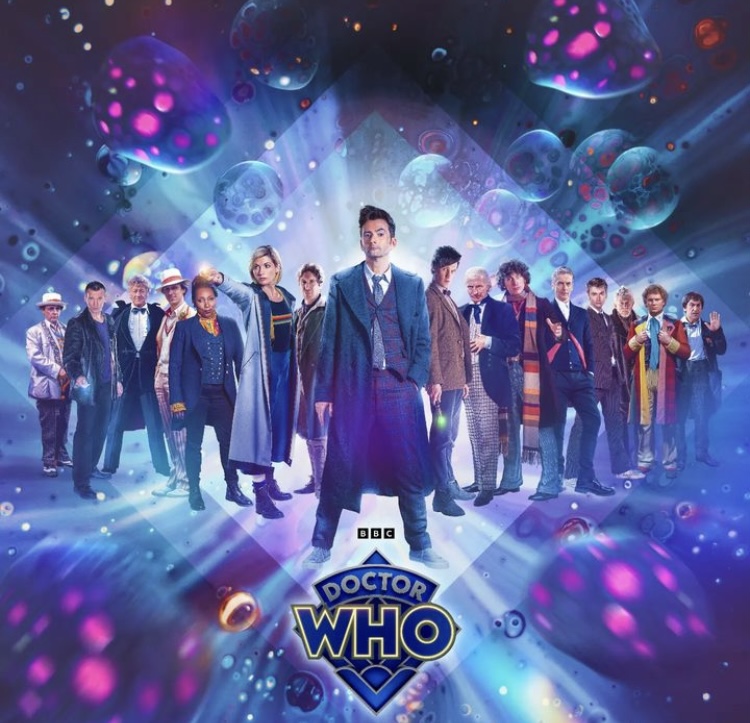
TV Writer Joel Bishton explores the legacy of Doctor Who, describing how its successful genre-switching as well as innovative ideas have led to its mass appeal and status as a staple of British television
My comfort show has an episode in which David Tennant fights a giant wasp with Agatha Christie. An episode in which a giant space parasite is ranted at by Matt Smith before being defeated by a leaf. An episode which sees Peter Capaldi walk around a castle for forty-five minutes before punching a wall. My comfort show is Doctor Who.
It would be impossible to discuss the show without discussing the figure at the heart of it: the Doctor. I would argue that it is the hardest part to play on television. You have to be able to do out and out comedy and then tragic and then full action heroic. To be able to rattle off scientific jargon at the speed of light but be completely unaware of most people’s feelings. And you have to do it all knowing that it is the first line of your obituary. Knowing that you are part of a British institution and on a BBC budget (meaning far less than you actually could do with).
It is the hardest part to play on television
For the uninitiated, ‘Doctor Who’ is about a time-travelling alien and their companion who go round time and space in a 1960s police telephone box. If you have heard someone refer to something as ‘bigger on the inside’, called something ‘timey wimey’ or made a joke about Daleks not being able to climb stairs, they are referencing Doctor Who. So if you need a reason to watch, watch to merely understand what the nerd in your life is referring to when they talk about The Timeless Child. Or why they are looking forward to November (three specials! Tennant and Tate back! RTD back!).
At this point, I should probably come clean. I am a full-blown Doctor Who nerd. I can name every actor to play the Doctor in a 90s Comic Relief sketch, written by future showrunner Steven Moffat. I have had discussions with people about whether the Children in Need sketch ‘Time Crash’, featuring both David Tennant and Peter Davison’s incarnations of the Time Lord, is canon. My nerdery is outshone however, by some fans I know, who can tell you every detail of every audio spin off or comic.
It may be this nerdery that makes Doctor Who my comfort show. Or it may be the fact that it is really, really good. I did not know that David Tennant staring longingly in the rain or Peter Capaldi grinning at Alex Kingston could move me to tears, but both have. It is a show that can run the full gamut of human emotion, often in just one episode. One of my favourites is ‘The Husbands of River Song’. A screwball romp that somehow also caps off the arc of a character that has appeared, on and off for eight years of the show.
It takes concepts that could sustain films and puts them into the show
It is a show of which the scariest episode is a psychological horror where the monster is not even seen (‘Midnight’). Yet also has episodes where the Doctor and their companion fight witches with William Shakespeare and battle ghosts with Charles Dickens. At Christmas.
This may give you the impression that Doctor Who is an insubstantial show that is just about getting historical figures to fight aliens. While it is that, at its best, it is also a show of ideas. It takes concepts that could sustain films and puts them into the show. Steven Moffat, creator of the weeping angels, has said that they were his movie idea that he kept in his desk for years before using it for one episode of Doctor Who. It also benefits from its scope.
The science-fiction element means you can explore other planets and do what sci-fi does best: explore humanity and human society. On the other hand, the history element means that you can do jokes on well known historical figures (according to Doctor Who, Queen Elizabeth I was married to the Doctor but they seemingly did not consummate their relationship) . And also explore lesser known figures (a recent episode showed Ada Lovelace, one of the pioneers behind the computer).
Overall, I would advise you to give the show a watch. Even if it is just to understand what everyone will be talking about come November.
Read more TV articles here:
Review: Black Mirror Season Six
Comments